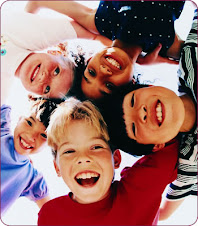 (http://www.thrivetheblog.org/category/your-advice/)
(http://www.thrivetheblog.org/category/your-advice/)The second image in Google image search for "adopted." Right after Angelina Jolie with Zahara. That seems to be the way this thing is framed. Idyllic and uplifting or shameful and traumatizing.
even if you are right and the child is adopted, why would you think it is appropriate to comment about this in front of the child? Depending on the situation, there is a fair chance that child hasn't been told yet that he is adopted and your rude comment may have done a lot more harm than you could ever imagine.
I sometimes resented people's assumption that adoptees must automatically, deep down, feel part empty or abandoned, that we must suffer some hole in us that will never be filled because our birth parents could not or did not raise us. I know people think this. I know because psychologists and adoption experts write essays and books about it. I know because of the questions people ask ("Did you always know you were adopted?" "How did you feel about that?") as if being adopted might mean you are somehow incomplete.
I also understand that adopted parents worry a lot about this. I've talked to parents who pine and mourn for their child's birth mother and father and fret over whether their baby will despair at not being able to know or find their birth family. I know parents who fear telling their child that he or she is adopted, which is ridiculous, in my view. The longer you conceal this so-called secret, the more likely it will become toxic.
My parents didn't set out to adopt two black boys. They wanted the white kid on my sister's pediatric ward.
...But the adoption agency peristed. There were scads of other children who needed homes, they said: black children.
...To reject a black baby would have been un-Christian, a sin. God was testing them. This was a chance to bear witness for Jesus Christ, to show the world that their God was not prejudiced and neither were they.
...Years later, I learned that the first time my mother touched David, she feared "the black would rub off on her hands."


